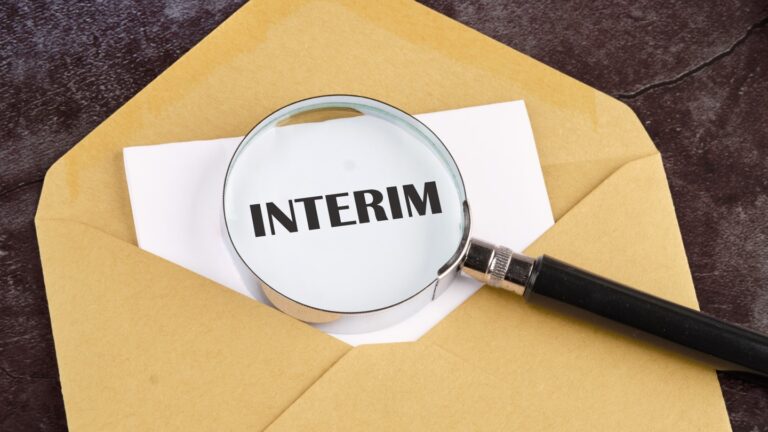Football Concussions – Is The Beautiful Game – Heading for Trouble?
The images of footballer Jan Vertonghen unable to walk and having to be helped off the pitch by two people are hard to forget. Unfortunately, the scenes are becoming more and more familiar and nothing seems to change.
After a head-to-head collision with another player in the 30th minute, Vertonghen suffered an extensive nose bleed and had to be treated both on and off the pitch. He was cleared as being fit to play in the 37th minute, before having to be taken off less than a minute later when he appeared groggy and was unable to walk unaided.
Following backlash from football fans, commentators and brain injury specialists, Vertonghen’s club, Tottenham Hotspur, have maintained that they followed the correct procedures. They released a statement defending their actions, saying that Vertonghen:
- “was assessed on the pitch immediately after the incident with our medical team strictly following Football Association concussion guidelines”
- “Following testing he was judged to be alert and answered all questions correctly and lucidly, deeming him fit to return to the field of play”
- “was immediately withdrawn as a result of the player informing medical staff that symptoms were developing suddenly and that he no longer felt stable standing up”
Spurs manager, Mauricio Pochettino, admitted that he was worried about Vertonghen and that they needed to “keep monitoring and watching him because it was a big knock”, but also seemed reluctant to be drawn into the arguments that Vertonghen should never have been cleared to play, saying “in that moment the doctor decides it’s OK. The medical staff are the boss on the decision”.
Spurs have reported that Vertonghen has passed all neurological tests so far, and, of course, it’s hoped that nothing comes of this blow. But the question remains – what if something horrible had happened? How long will it be until something tragic does happen? Is that what it will take for head injuries in football to be taken seriously?
Football head injury rules remain inadequate
Head injuries are complex and evolving and can result in significant and lifelong injuries. There is no one diagnostic tool for a concussion. Subtle brain injuries, which include concussions, are said to occur in over one million people a year in the UK. Whilst symptoms usually occur quickly, it can take hours or days for them to arise.
The problem with football is that the guidelines that are in place are completely unreliable, dangerous and woefully inadequate. This includes:
- The Football Association guidelines which say that a professional player suspected of having a concussion must refrain from play for a minimum of six days. The same guidelines say that non-professionals, who do not benefit from the same ‘enhanced care’ as professionals, must sit out for a minimum of 19 days. Both the NHS and Headway recommend rest and avoiding contact sport for ‘weeks’ following a concussion. So why does the FA limit this to six days for professionals? And why are non-professionals allowed longer? The fact that they have access to enhanced medical care should not change the fact that they may still go on to suffer effects of a traumatic brain injury just like anyone else would.
- It’s currently the team’s doctor who has to clear a player as being fit to play. This is usually done within five minutes or less, with UEFA only allowing three minutes for a match to be stopped. These doctors are not independent, and are likely to be influenced by outside factors. This raises huge concerns, in respect of:
- The likelihood that team doctors will not be specialists in head injury, and may miss subtle, but vital, signs
- The limited time given to doctors in checking the players, leading to potentially unreliable assessments and decisions being made
- The pressure on doctors from the manager and the club to get the players back on the pitch, both because they do not want to lose the player and also because there are no allowances for substitutions due to head injury
The truth is, the guidelines just aren’t good enough and trivialise the dangerous and significant impact that concussion can have on players. There is more and more research linking degenerative brain disease to head impacts. Whilst I accept that head impacts are part and parcel of football, it doesn’t mean that we can’t do more to protect players from danger. The football world needs to pay more attention to concussion – it is a traumatic brain injury. It’s reckless and dangerous to dismiss symptoms within minutes and hope for the best.
Protecting footballers in the workplace
There’s also the legal side to this. Footballers are employees and as with anyone in this situation – their employer has a duty of care to take reasonable steps to protect them from foreseeable harm. Governing bodies and clubs may be vulnerable to legal claims against them for ignoring the known risks and failing to establish, and follow, proper protocols.
If a player was to be harmed because of these breaches of duty of care, who would be liable? This is not so clear cut. Would it be the governing body who establishes the protocols, for failing to put into place proper guidelines? Would it be a club for failing to follow the guidelines in place? How about the doctor who clears the player as fit to play? Or the referee who allows the player back on the pitch? The legislation is lacking, but this is something that football bodies need to focus their attention on. Breaching a duty of care leaves a person and/or body open to legal claims against them, to compensate for the extent of injury and loss caused by their failings.
This may seem far-fetched to us, but you only have to look to the NFL to see that this is a sporting reality. In the United States, thousands of legal claims have been taken out against the NFL in respect of brain injuries suffered due to inadequate protocols and precautions. The compensation awarded has surpassed $500 million.
Are Concussion substitutes the answer?
So what steps should be taken? First and foremost, I think that the current guidelines in football need to change, both nationally and internationally. The problem is more that the protocols are inadequate, not that teams aren’t following them. Changes which would make a difference include:
- A mandatory assessment from an independent neurologist for anyone suspected of having a brain injury. This removes any bias and also allows for specialist doctors to make informed decisions;
- Temporary substitutions. This removes some of the pressure on teams to get players back on the pitch and also means that players can be assessed for longer on the side.
- Review of the timeframes allowing players back on the pitch following a suspected concussion and introduction of independent neurology assessments before a player can return.
The authenticity of football does not have to be compromised in order to protect a player’s life. Do we really have to wait until something awful happens before this is accepted and changes are made? When Fabrice Muamba had a cardiac arrest, changes were introduced to have defibrillators on the pitch. Why can’t we take precautions before harm is suffered?
You can read further comments from me about brain injury in football using the links below:
- Roy Keane’s concussion comments point to a man and a sport still out of touch with the times – The Independent
- ‘Well done, Liverpool’ – Clubs urged to copy major decision regarding head injuries – Daily Star
Ipek Tugcu is an associate solicitor at Bolt Burdon Kemp specialising in Adult Brain Injury claims. If you feel you may have a claim or are enquiring on behalf of a loved one, contact Ipek free of charge and in confidence on 020 7288 4849 or at ipektugcu@boltburdonkemp.co.uk. Alternatively, complete this form and one of the solicitors in the Adult Brain Injury team will contact you. Find out more about the Adult Brain Injury team.










